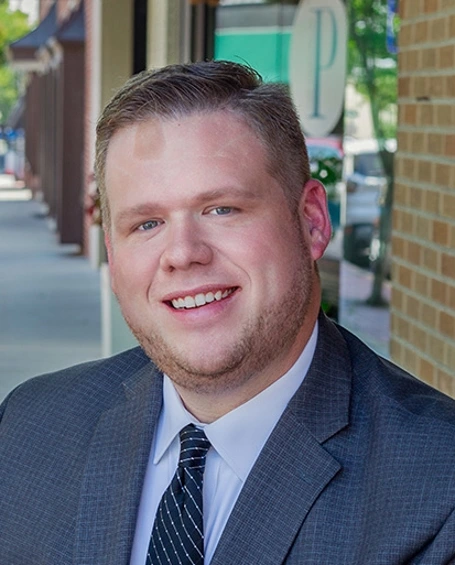Quirk in Medicare System’s Observation Status
Benjamin E. Long - Championing Rights in Medicare Observation Status Cases
As the founding attorney at Schlagel Long, LLC, with a focus on estate planning and probate law, Benjamin E. Long is deeply committed to addressing the evolving challenges faced by seniors and their families in the realm of elder law. With his extensive background in probate, property, and business matters, Ben has emerged as a knowledgeable advocate in cases involving the complexities of Medicare's observation status.
Recognizing the financial and emotional burdens that the Medicare system's observation status places on elderly patients and their families, Ben is dedicated to offering legal guidance and support. His expertise encompasses assisting clients in understanding and navigating the intricacies of Medicare, particularly in light of the growing issue of observation stays.
Ben's approach is not just about legal representation; it's about telling the story of each client in a way that honors their dignity and life's work. He understands that dealing with Medicare's observation status is not just a legal issue but also a deeply personal one, involving a patient's health, financial security, and family dynamics.
His legal education at Washburn University School of Law, combined with his background in biology from Kansas State University, provides him with a unique perspective on the interplay between law, healthcare, and the needs of the aging population.
Benjamin Long is not only an accomplished attorney but also a dedicated educator, teaching at Washburn Law School and coaching the Kansas State University Mock Trial Team. His awards and recognitions, including the Super Lawyer Rising Star and the Martindale-Hubbell Client Distinction Award, attest to his professional excellence and commitment to his clients.
For those facing challenges related to Medicare's observation status, Benjamin E. Long offers a blend of legal acumen, compassionate understanding, and a tireless commitment to advocating for the rights and well-being of the elderly and their families.

The Growing Issue of Medicare's Observation Status
“Unfortunately, over a decade, the number of observation stays has increased exponentially and is being used, even when patients have a diagnosis and have been admitted by their own physicians.”
There’s a troubling quirk in the Medicare system that occurs when older patients are hospitalized and instead of being officially admitted, they are placed on “observation status” reports the article “Caught Paying for Rehab Due to Observation Status? Medicare May Owe You” from The National Law Journal.
How Observation Status Negatively Affects Patients
Financial Burdens of Observation Status on Medicare Beneficiaries
The Consequences of Medicare's Claims Review Process
Protecting Hospitals at the Expense of Patients
The hospital seeks to protect itself, by designating a patient as observation status. There’s no downside to the hospital, since this is covered by Medicare, just under Part B, rather than Part A.
However, for the patient, it’s not that simple. First, the denial of Part A inpatient coverage means that the patient has to pay for each and every deductible and copay for each service. Prescription drugs received while the patient is in the hospital are billed separately and aren’t included under the Part A inpatient payment.
It gets worse. Medicare coverage for post-hospital care is denied or extremely limited for observation status patients. Medicare only covers rehab costs in a facility, if the patient was admitted to the hospital for at least three days.
Observation status days do not count towards those qualifying days. It doesn’t matter if the treating physician had the patient admitted to the hospital, because hospitals can change the status of the patient retroactively.
Challenging Medicare's Observation Status Decisions
The Impact of Alexander v. Azar on Reimbursement Appeals
Seeking Legal Assistance in Observation Status Cases
Consulting an Elder Law Estate Planning Attorney
Patients whose doctors placed them on observation status still are not permitted to appeal.
Speak with your elder law estate planning attorney, if this scenario applies to you or family member.

Estate Planning Legacy Planner
Everyday, we work with people who have lost someone they care about. There is so much these folks have to organize and manage. This planner organizes the information they will most need, in our experience, saving so much time and unnecessary cost. Besides organizing your information, it's so important to have a good estate plan that will keep your family out of court and conflict.
Please use the button below to receive a free copy of our Estate Planning Legacy Planner, an organization tool essential to any estate plan designed to help your loved ones take care of you and handle your affairs.
